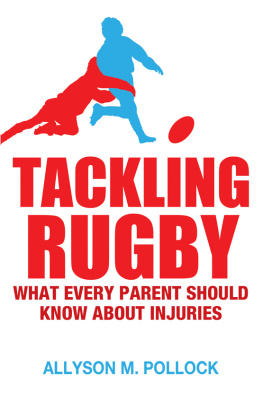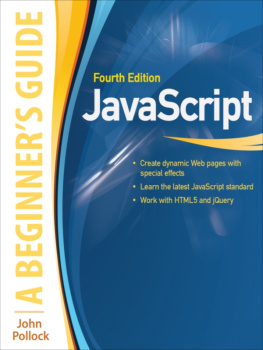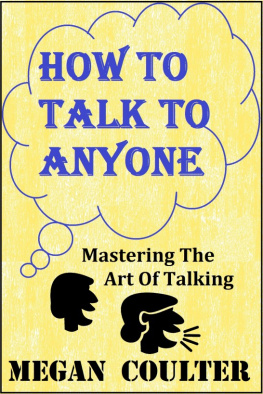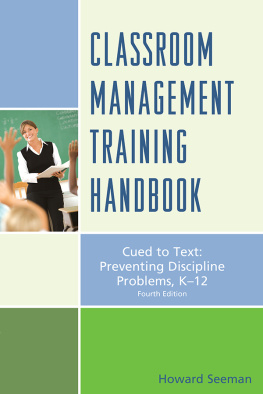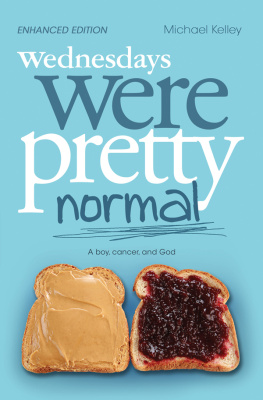MICA POLLOCK is the director of the Center for Research on Educational Equity, Assessment, and Teaching Excellence (CREATE) at the University of California, San Diego. The editor of Everyday Antiracism (The New Press), she lives in southern California.

2017 by Mica Pollock
All rights reserved.
No part of this book may be reproduced, in any form, without written permission from the publisher.
Requests for permission to reproduce selections from this book should be mailed to: Permissions Department, The New Press, 120 Wall Street, 31st floor, New York, NY 10005.
Published in the United States by The New Press, New York, 2017
Distributed by Perseus Distribution
ISBN 978-1-62097-104-8 (e-book)
CIP data is available
The New Press publishes books that promote and enrich public discussion and understanding of the issues vital to our democracy and to a more equitable world. These books are made possible by the enthusiasm of our readers; the support of a committed group of donors, large and small; the collaboration of our many partners in the independent media and the not-for-profit sector; booksellers, who often hand-sell New Press books; librarians; and above all by our authors.
www.thenewpress.com
Book design and composition by Lovedog Studio
This book was set in Adobe Garamond
Printed in the United States of America
10 9 8 7 6 5 4 3 2 1
To my family, past and present,
who have always acted like I had something to say.
Contents
A note on the chapters and activities to come.
This book is designed to support everyday exploration and inquiry by many people. You can read it alone or with others. I wanted the book to be accessible to people with a wide variety of backgrounds, and applicable to a wide variety of work and life situations. I write informally throughout this book, in short paragraphs to aid digestion.
I designed this books sections to be read in order. The Introduction gives you an overview of the whole book and foundational ideas to which we return repeatedly. A (Brief) Guide to Talking Effectively with Colleagues (which appears in full in the Appendix) sets you up to talk with others as you read. Then, seven chapters walk through key aspects of schooltalking for equity. A Conclusion sets you up for ongoing equity effort. I cite resources along the way that I hope youll pursue. They appear as endnotes so they dont distract you while you read.
To promote ongoing reflection and application, youll see THINK/DISCUSS questions peppered throughout each chapter. Ive placed THINK/DISCUSS questions that are best tackled after reading at the back of every chapter (More schooltalk scenarios). Even if you dont engage in all of those discussions, I hope youll read all the THINK/DISCUSS questions and select the ones that resonate most for your work.
Right as each chapter ends, Action Assignments invite you to engage and share key schooltalk issues with others and to share examples of schooltalking for equity. This book quotes many researchers and educators, plus students and parents; Action Assignments will ask you to tap more youth and adult voices. I hope to continue the dialogue online using the hashtag #schooltalking. Together, lets redesign schooltalk with equity in mind.
Schooltalk seeks to support you to redesign the most basic thing people do in education: talk about young people and with them.
With all the work we need to do in education, why focus a whole book on designing new schooltalk?
Because everybody talks;
And because communication is action: talk about (and with) young people shapes their lives.
Schools are where we shape the next generation and through them, the world.
And the most basic thing we do all day in schools is talk.
Equity workactive effort to develop the full human talents of every young person, and all groups of young peoplestarts with our words.
We talk about a million things in schools as we educate young people. We talk about math and science and literature and social studies; we discuss the nation and the world.
In this book, were redesigning the most foundational form of schooltalk: talk about young people themselves. Thats because such schooltalk causes some of our most fundamental problems for young people.
All school pathways for students are shaped by basic communications about students.
Sometimes, single communications change our paths.
THINK / DISCUSS
Did anyone ever say anything about you in school that particularly supported your school success, or slowed you down? Try to remember one story.
I always loved to write. I remember one librarian telling me that a little book I wrote in kindergarten was so good she was going to put a copy in the library. (Then she actually did it.) She was the first person to call me an author. And I remember my dad telling me that one day maybe Id become a writer. His expressed confidence in me shaped my identityas did the opportunities teachers then gave me to develop my writing skills.
I also remember that once in grad school, a professor told me that I probably shouldnt become a writer. I still hear his voice in my head along with the others, making me doubt my abilities.
I know countless people hear much from counselors about how to get to college, either.
Daniela actually defied that counselors prediction and went to Berkeley, then Stanford, to become a professor of education who studies how to support Latino students through college. After Daniela got her PhD, she went back to that counselor to make sure he never talked down the potential of another young person.
Whenever I tell that story, listeners have something similar to share.
THINK / DISCUSS
Have you ever explicitly challenged a common comment about young people as harmful to young people? What was the comment, and how did you challenge it? Did your strategy work?
Can you think of a common comment that you did not challenge, even though it bothered you? Why didnt you?
Millions of common things we say about and then to young people can shape students fates in schools. Consider each of these examples:

 A teacher or peer calls a students community ghetto. How might this shape young peoples sense of themselves, their classmates, and their school?
A teacher or peer calls a students community ghetto. How might this shape young peoples sense of themselves, their classmates, and their school?

 A counselor calls the student body not college material in a faculty meeting about whether to offer more AP sections. How might the comment affect the groups thinking?
A counselor calls the student body not college material in a faculty meeting about whether to offer more AP sections. How might the comment affect the groups thinking?

 A teachers aide or specialist describes students in the car ride to school with words like Special Ed kids or losers, or, conversely, describes a few students as unusually gifted or smart. How might he or she treat each of these students in class?
A teachers aide or specialist describes students in the car ride to school with words like Special Ed kids or losers, or, conversely, describes a few students as unusually gifted or smart. How might he or she treat each of these students in class?

 Administrators explain a chart of achievement outcomes, broken down by race, language group, gender, or disability, in a faculty meeting as they make decisions about hiring additional support staff. What happens to the analysis of student needs when someone says summarily that one group of kids just doesnt want to learn?
Administrators explain a chart of achievement outcomes, broken down by race, language group, gender, or disability, in a faculty meeting as they make decisions about hiring additional support staff. What happens to the analysis of student needs when someone says summarily that one group of kids just doesnt want to learn?
Next page

